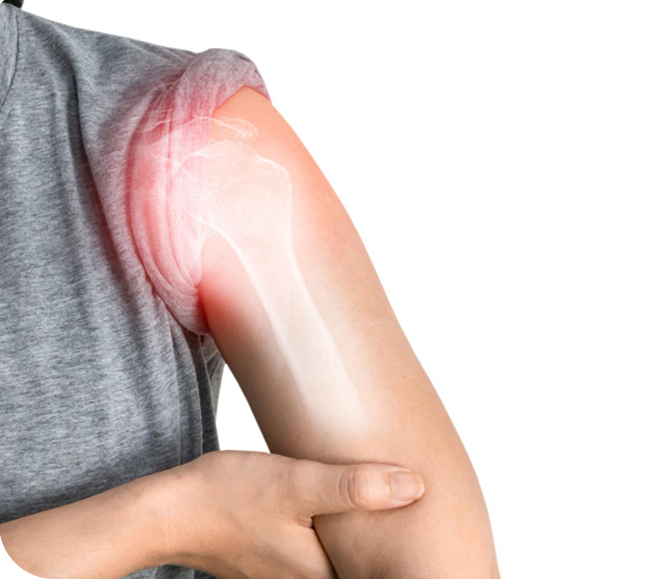
Sports Medicine
Maintaining Your Health Plays An Important Role In Our Lives
The vast majority of orthopaedic and sports injuries do NOT require surgery, and are best treated by non-operative rehabilitative techniques. We are in the forefront of the rapidly expanding world of sports medicine, and can help decide the best approach and treatment for each patient. When surgery is indicated, we try to apply arthroscopic or minimally invasive techniques to correct the disorder, when appropriate.
Shoulder
Depending on the nature of the problem, nonsurgical methods of treatment often are recommended before surgery. However, in some instances, delaying the surgical repair of a shoulder can increase the likelihood that the problem will be more difficult to treat later.
Your shoulder is the most flexible joint in your body. It allows you to place and rotate your arm in many positions in front, above, to the side, and behind your body. This flexibility also makes your shoulder susceptible to instability and injury.
Early, correct diagnosis and treatment of shoulder problems can make a significant difference in the long run.


Knee
With increasing life expectancy, obesity rates and patients’ demands in active lifestyles the knee is commonly a symptomatic joint and is susceptible to injury at all ages.
Knee surgery has long been a major component of orthopaedic surgery encompassing both degenerative and traumatic conditions.
- Total Knee Replacement
- Partial Knee Replacement
- Anterior Cruciate Ligament Surgery
- Cartilage and Meniscus Surgery
- Knee Arthroscopy
- Knee Osteoarthritis
- Patello Femoral Conditions
Hip
Treatment of hip conditions have been developed with both young and old in mind; from initial consultation and investigations, to surgery and rehabilitation, every aspect of care is tailored towards achieving a rapid return to daily activities

